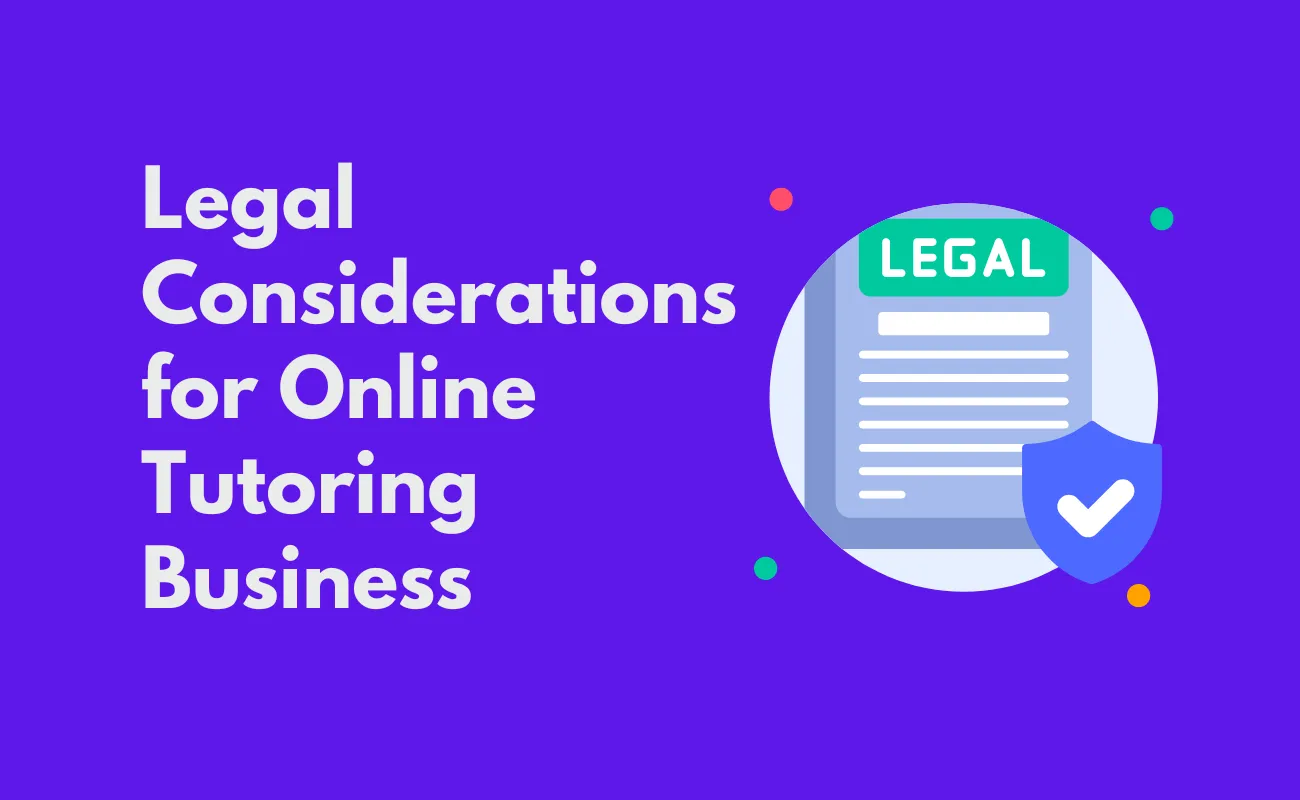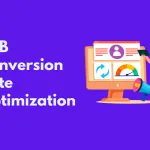Embarking on the journey of starting an online tutoring business is both exciting and rewarding. However, it’s vital to carefully navigate the legal landscape to ensure your business is both compliant and protected. Understanding the key legal considerations will help you lay a solid foundation for your tutoring services.
Whether you’re a seasoned educator or an enthusiastic newcomer, grasping the legal aspects of running an online tutoring business is essential. From selecting the appropriate business structure to safeguarding your clients’ data, each decision requires thoughtful consideration.
In this article, we will explore the 5 key legal considerations you need to keep in mind when starting your online tutoring business. This guidance aims to help you avoid potential pitfalls and focus on delivering exceptional tutoring services to your clients.
1. Choosing the Right Business Structure
Embarking on the journey of starting an online tutoring business brings with it one of the first and most critical decisions: choosing the right business structure. This choice significantly influences your tax obligations, personal liability, and the overall legal framework within which your business operates. After choosing the right legal business structure for online tutoring, you can consult with virtual legal assistant services.
Below, we explore the key options available:
Understanding the Options
The three most common business structures tailored for small service enterprises like online tutoring include the sole proprietorship, single-member LLC, and corporation. Each presents unique advantages and challenges:
Sole Proprietorship: This structure is the most straightforward and cost-effective route to launching a business. However, it lacks liability protection, exposing your personal assets to potential business debts or legal entanglements. All business income and losses are directly reported on your personal tax return.
Single-Member LLC: Offering a layer of liability protection and tax reporting flexibility, this option is slightly more intricate and expensive than a sole proprietorship. It establishes your business as a separate legal entity, which can shield your personal assets from business-related liabilities.
Corporation: As the most complex and costly option, a corporation provides the highest level of liability protection. It distinguishes your personal and business tax situations entirely. This structure is typically suited for businesses on a rapid growth trajectory or those with multiple owners.
| Entity Type | Sole Proprietorship | Single-Member LLC | Corporation |
|---|---|---|---|
| Liability | Owner personally liable for business debts | Owner generally shielded from personal liability for business debts | Owners have limited personal liability for business debts |
| Taxation | Owner reports profit or loss on personal tax return (Schedule C) | Treated as disregarded entity, taxed as sole proprietorship by default; can elect to be taxed as C or S corporation | Corporation taxed on its earnings at the corporate level; shareholders taxed on dividends (double taxation) |
| Formation | No formal paperwork required; may need to register a fictitious business name (DBA) | Requires filing Articles of Organization and an operating agreement; state fees apply | Requires filing Articles of Incorporation; more formal and expensive to create |
| Management | Owner manages the business; straightforward decision-making | Can be managed by its member or designated managers; more flexible | Board of Directors has overall management responsibility; officers handle day-to-day operations |
| Formation Costs | No cost to establish | State fees and costs associated with filing and maintaining | More expensive to create than partnership or sole proprietorship |
| Corporate Maintenance | No formal corporate maintenance required | Significantly easier to maintain than a corporation; annual reports may be required | Formality requirements (e.g., annual reports, minutes, meetings) are required |
Creating Original Content and Protecting It
Developing original content, including lesson plans, study materials, and online resources, is essential for the success of your tutoring services. To safeguard this content, it’s important to consider intellectual property rights and implement confidentiality agreements. For example, before you write an NDA for your team members, ensure it covers the protection of your proprietary materials, ensuring your content remains exclusive and does not get shared without authorization.
This measure is essential in preserving the uniqueness and value of your tutoring services.
2. Licensing and Compliance Requirements
Embarking on an online tutoring business journey requires a thorough understanding of the intricate licensing and compliance requirements. The specifics of these regulations can widely vary based on your geographical location and the nature of the services you provide. Here’s a guide to ensuring your business remains compliant:
Navigating State and Local Regulations
Although not always mandatory, securing a specific license for your online tutoring business, adherence to local and state regulations is imperative. These may encompass business registration, fulfilling tax obligations, and acquiring any other necessary permits specific to your area of operation.
In certain jurisdictions, for example, you might be required to possess a teaching credential or a bachelor’s degree to tutor specific subjects or age groups. This is particularly true for specialized fields like public health. If you’re offering tutoring services related to public health, having an advanced degree, such as an online masters in public health program, might not only enhance your credibility but also be a requirement in some areas.
For instance, if you’re tutoring students enrolled in an online masters in public health program or providing supplementary education in this field, you may need to demonstrate a certain level of education or professional licensing. This ensures that you’re qualified to provide accurate and up-to-date information in a field that directly impacts public welfare.
This table highlights various niches in ESL teaching that often require specific certifications or licenses, helping tutors to specialize and enhance their teaching effectiveness.
| Niche | Description | Required Certifications or Licenses |
|---|---|---|
| Teaching Young Learners | Specializing in teaching English to children, often in international schools, language academies, or online platforms[6] | TEYL (Teaching English to Young Learners) certification, 60-hour accredited course[6] |
| Teaching Adult Learners | Focuses on teaching English to adults for professional or personal reasons, often in corporate training, universities, or private language schools[6] | TEAL (Teaching English to Adult Learners) certification, 70-hour specialist course[6] |
| Business English | Teaching English for business purposes, including business presentations, professional writing, and accent reduction[3][6] | Business experience or degree in business; specialist courses in Business English[3] |
| Exam Preparation | Preparing students for English language exams such as Cambridge Assessment Exams[3] | Courses specializing in exam preparation; TEFL/TESOL certification[3] |
| English for Specific Purposes (ESP) | Teaching English tailored to specific professions like nursing, accounting, or hospitality[6] | TEFL/TESOL certification; background or training in the specific profession[6] |
| English for Academic Purposes (EAP) | Preparing students for academic English, often for university studies[6] | TEFL/TESOL certification; experience in academic settings[6] |
| Pronunciation Reduction | Specializing in improving students’ pronunciation, intonation, and word stress[1] | TEFL/TESOL certification; specialized training in pronunciation[1] |
It’s paramount to investigate local laws and regulations pertinent to online businesses and educational services. This process might include registering your business, obtaining the required licenses, and ensuring compliance with all tax obligations. Additionally, consider obtaining liability insurance to shield your business from unexpected events.
Creating Original Content and Protecting It
Developing original content, such as lesson plans, study materials, and online resources, is essential in differentiating your tutoring services. Protecting this content necessitates understanding intellectual property rights and implementing confidentiality agreements. For instance, securing a non-disclosure agreement (NDA) from tutors you employ can help protect your proprietary materials and prevent unauthorized sharing of your content.
This measure is especially significant if you’re creating unique educational materials or employing distinctive teaching methodologies you wish to keep exclusive to your business. By having tutors sign an NDA, you can preserve the integrity and uniqueness of your tutoring services, offering a competitive edge in the market.
3. Developing Clear Service Agreements and Terms of Use
Developing clear service agreements and terms of use is a critical step in establishing a successful and legally compliant online tutoring business. These documents are the foundation of your relationship with clients, detailing the expectations, responsibilities, and terms that govern the tutoring services you provide.
Creating Transparent and Fair Terms
A well-crafted service agreement should be transparent, fair, and comprehensive. Essential components to include are:
- Scope of Services: Clearly define the tutoring services you will provide, including the subjects, frequency, and duration of the sessions. This sets clear expectations for both you and your clients.
- Payment Terms: Specify the fee structure, payment methods, and billing cycles. Important to outline any additional costs, such as materials or software, and include policies for cancellations, refunds, and late payments.
- Scheduling: Detail the scheduling process, including how sessions will be scheduled, rescheduled, or canceled. This maintains a structured and organized learning environment.
- Communication: Establish clear communication channels and protocols for both tutors and clients. This can include how to report issues, request changes, or seek support.
Protecting Your Business and Your Clients
Service agreements and terms of use also protect both your business and your clients by addressing several key areas:
- Liability: Include a liability clause that outlines the responsibilities and limitations of your tutoring services. This minimizes risks by clearly stating what you can and cannot be held accountable for.
- Confidentiality: Add confidentiality agreements to protect sensitive information shared during tutoring sessions. This ensures that both parties understand the importance of maintaining confidentiality.
- Conflict Resolution: Provide a mechanism for resolving conflicts or disputes that may arise. This could include steps for open communication, mediation, or arbitration.
- Legal Compliance: Ensure that your service agreements comply with local laws and regulations. Consulting with a legal professional can help in ensuring that your contracts are legally sound and protect both your business and your clients.
By creating comprehensive and transparent service agreements, you can build trust with your clients, avoid potential misunderstandings, and establish a strong foundation for your online tutoring business.
4. Understanding and Implementing Data Protection Policies
Protecting student data is a critical aspect of running an online tutoring business. Ensuring compliance with relevant data protection laws and implementing robust security measures are essential to maintaining trust with your clients and safeguarding sensitive information. Here’s how you can effectively understand and implement data protection policies:
Complying with COPPA and GDPR
Two key regulations that online tutoring businesses must comply with are the Children’s Online Privacy Protection Act (COPPA) and the General Data Protection Regulation (GDPR), depending on your target audience and geographical reach:
COPPA: If your tutoring services cater to children under the age of 13, you must comply with COPPA. This law requires you to obtain parental consent before collecting, using, or disclosing personal information from children.
You must also provide parents with notice of your data collection practices and allow them to review and delete their child’s information.
GDPR: If you serve clients in the European Economic Area (EEA), you must comply with GDPR. This regulation mandates that you process personal data lawfully, fairly, and transparently. You must also ensure that data is accurate, kept up to date, and not held for longer than necessary.
Additionally, GDPR requires you to implement robust security measures to protect personal data and to notify authorities in the event of a data breach.
Securing Student Information
To secure student information effectively, you need to implement several key measures:
- Internal Data Policy: Develop a comprehensive internal data policy that outlines how student data will be collected, stored, and used. This policy should include clear guidance on data sharing, encryption, and secure storage practices.
- Secure Storage and Transmission: Ensure that all student data is stored securely and transmitted using encrypted protocols. This includes using secure online platforms, encrypting emails, and blocking online tracking and advertising on devices used for tutoring.
- Data Breach Response: Establish a detailed Data Breach Response Policy to handle any incidents that may occur. This policy should outline steps for reporting breaches, containing the damage, and notifying affected parties.
- Training and Awareness: Train all staff, including tutors, on data privacy legal requirements and best practices. Regular updates and training sessions can help in maintaining a secure online learning environment.
- Parental Involvement: Keep parents informed about the data you collect, how it is used, and with whom it can be shared. This transparency helps in building trust and ensuring compliance with data protection laws.
By implementing these measures, you can ensure that your online tutoring business is not only compliant with relevant regulations but also provides a secure and trustworthy environment for your clients.
5. Intellectual Property and Copyright Considerations
Understanding intellectual property and copyright considerations is vital for the success of an online tutoring business, as they significantly influence the ownership and usage rights of the materials you develop and use. Here are strategies to effectively navigate these complexities:
Creating Original Content
When crafting original content for your online tutoring venture, it’s important to discern who holds the copyright. Typically, if you generate content with your own resources and outside any specific contractual commitments to your employer, you are likely the copyright holder. However, scenarios involving a stipend or a reduced workload in exchange for content creation may grant your institution certain ownership rights.
To safeguard your original content, having tutors sign non-disclosure agreements (NDAs) is advisable if they will engage with or access your proprietary materials. This step ensures your innovative teaching methodologies and materials remain exclusive, bolstering the uniqueness and value of your tutoring services.
Using Third-Party Resources
Incorporating third-party resources, like textbooks, videos, or other educational tools, demands a thorough understanding of copyright laws. Essential considerations include:
- Fair Use: Grasp the principles of fair use, permitting limited copyrighted material usage without authorization for purposes such as criticism, commentary, news reporting, teaching, and research. Remember, fair use evaluations are specific to each situation, factoring in the use’s purpose and character, the copyrighted work’s nature, the used portion’s amount and significance, and the impact on the work’s potential market.
- Permission and Licensing: For uses beyond fair use, obtaining written consent from the copyright holder or securing appropriate licenses is necessary, especially for materials integral to your tutoring offerings, like video lectures or interactive tools.
- Technological Measures: Respect technological measures that prevent unauthorized distribution when using copyrighted materials. This might involve implementing passwords or other identification methods to restrict access to enrolled students, thereby preventing material downloads or sharing.
By being attentive to these intellectual property and copyright considerations, you can protect your original content, comply with copyright laws, and uphold your online tutoring business’s integrity.
Conclusion
Launching an online tutoring business demands meticulous attention to several key legal aspects to ensure both compliance and protection. It’s important to select the appropriate business structure, like a sole proprietorship or LLC, to shield your personal assets.
Adhering to state and local regulations is essential, as is crafting clear service agreements and terms of use to protect both your business and your clients. Implementing robust data protection policies is imperative to secure student information, while also ensuring compliance with intellectual property and copyright laws. By tackling these legal considerations head-on, you lay a solid foundation for your online tutoring business, enabling you to concentrate on providing high-quality services to your clients.
Dedicating time to research and comply with these requirements is key to forging a successful and legally sound enterprise.








Leave a Reply